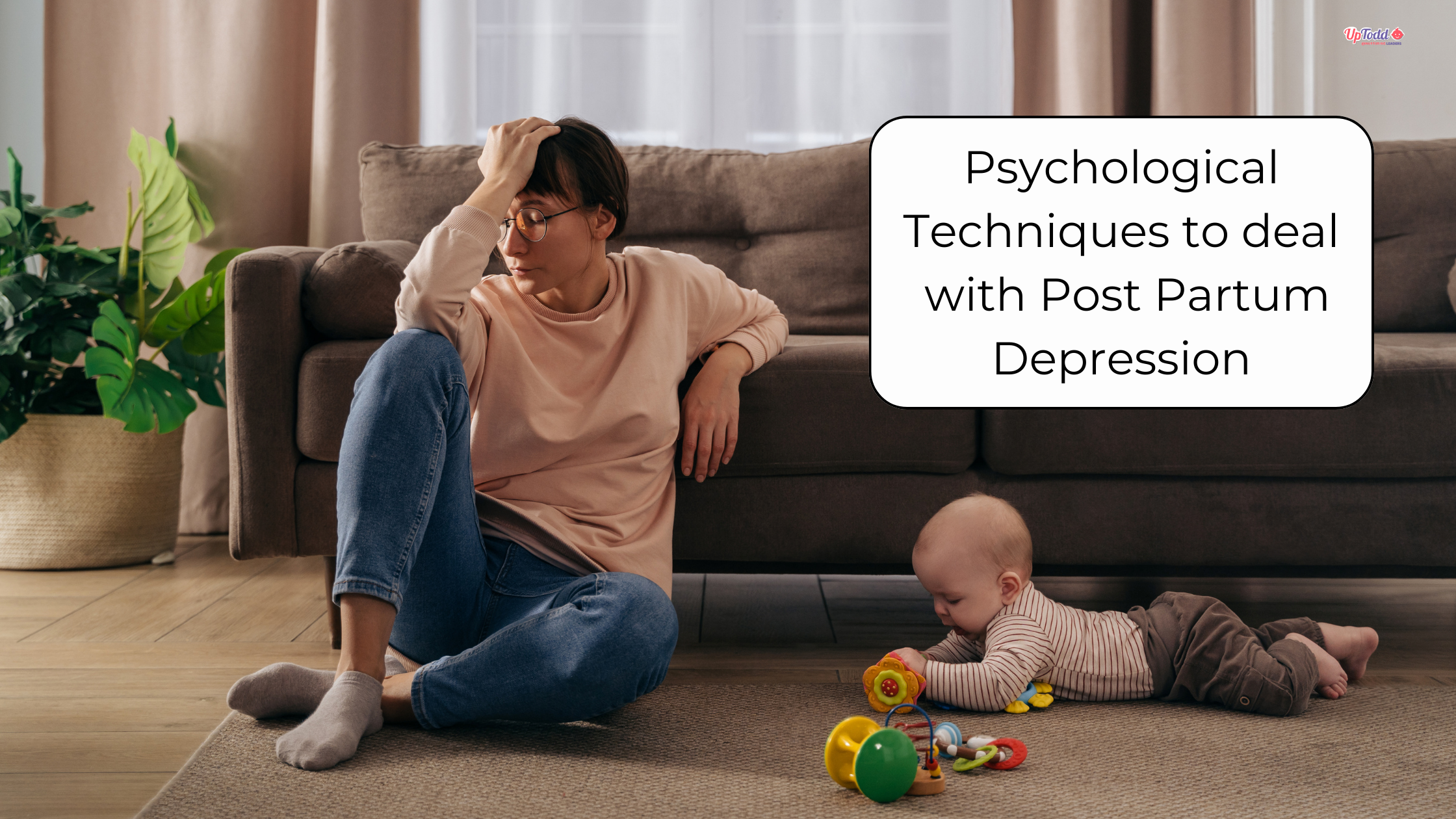
Like all other disorders postpartum depression treatment should also be taken care at high priority. In the ICD-10, postpartum depression falls under the category of “Mood [affective] disorders,” specifically termed as “F53.0 Postnatal (postpartum) depression.” It is classified as a type of depression that occurs within six weeks after childbirth.
Postpartum depression (PPD) affects up to 15% of moms. Recent research has discovered a number of psychosocial and biological risk factors for PPD. Postpartum blues is found in 15-85% of women. It shows in the first 10 days after giving birth, with the fifth day having the highest prevalence.
.Let’s talk about Postpartum Depression treatment techniques from a psychological view point.
Psychological techniques that can help in the case of Postpartum Depression
Postpartum depression can be a difficult journey to navigate. There are psychological techniques that can provide important help right from the comfort of your own home. These techniques offer strategies to manage the emotional upheaval and stress associated with postpartum depression.
- Mindfulness and Meditation: Using mindfulness techniques and meditation to manage stress and anxiety can assist. Simple deep breathing exercises might help you relax and reduce anxiety.
- Journalling: It offers a private space for mothers to express their emotions, track their experiences, and navigate the complexitie. Mothers can process emotions, manage stress, and get insights into their thoughts and feelings via writing. It tailors to individual needs, promoting self-reflection, emotional processing, and self-awareness—an adaptable, versatile tool.
- Positive Affirmations: For mothers suffering from postpartum depression, positive affirmations can be quite beneficial. Intentionally craft and repeat positive affirmations such as ‘I am capable and resilient,’ ‘I am worthy of self-care.’ These affirmations counter self-doubt and feelings of inadequacy commonly associated with postpartum depression. Consistent use gradually shifts focus from negativity to a more positive, empowering perspective, aiding emotional recovery.
Lets’ Know Few More Techniques
- Gratitude Practice: In case of postpartum depression, cultivating a gratitude practice can be a source of hope. Encourage mothers to write down even the simplest things they’re grateful for each day. It can be a supporting gesture, a moment of quiet, it can help them develop a more positive view. This exercise redirects focus away from stressful thoughts and toward recognizing and appreciating positive parts of their life.
- Monitoring Negative thoughts: It is essential to monitor and challenge negative thoughts when dealing with postpartum depression. It entails detecting negative self-talk and challenging its veracity. For example, if a mother feels inadequate, she would examine if there is evidence to back that feeling. She’d then reframe it positively, admitting mistakes but not allowing them to define her parenting abilities. This technique interrupts the loop of self-blame. It promotes a more sympathetic image of oneself, which aids in the treatment of postpartum depression.
While these psychological techniques are really beneficial in dealing with postpartum depression. Psychological techniques like Progressive Muscle Relaxation, Cognitive Behavioural Therapy, Interpersonal therapy can help. Also Rational Emotive Behavioural Therapy, Rational Emotive Therapy can be really beneficial when conducted by a trained Psychologist.
Explore UpTodd personalised Parenting program
To Explore the Symptoms of Postpartum Depression watch this video
